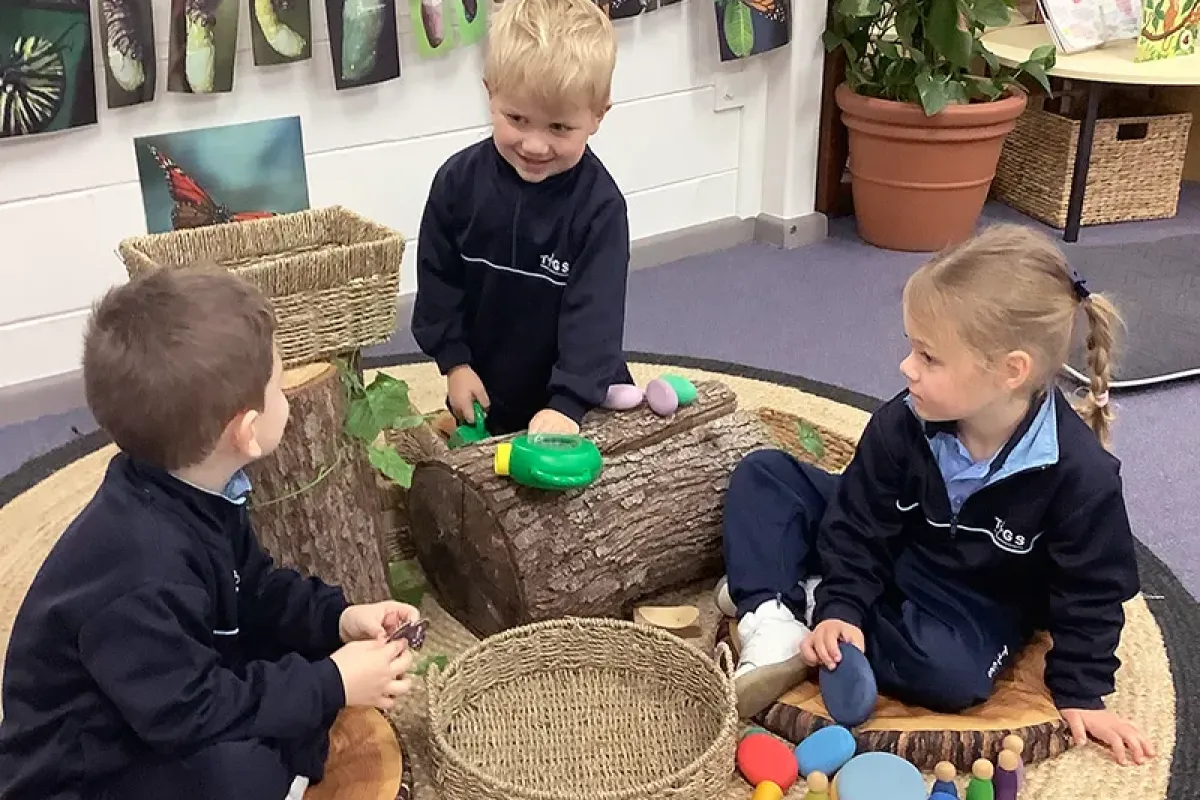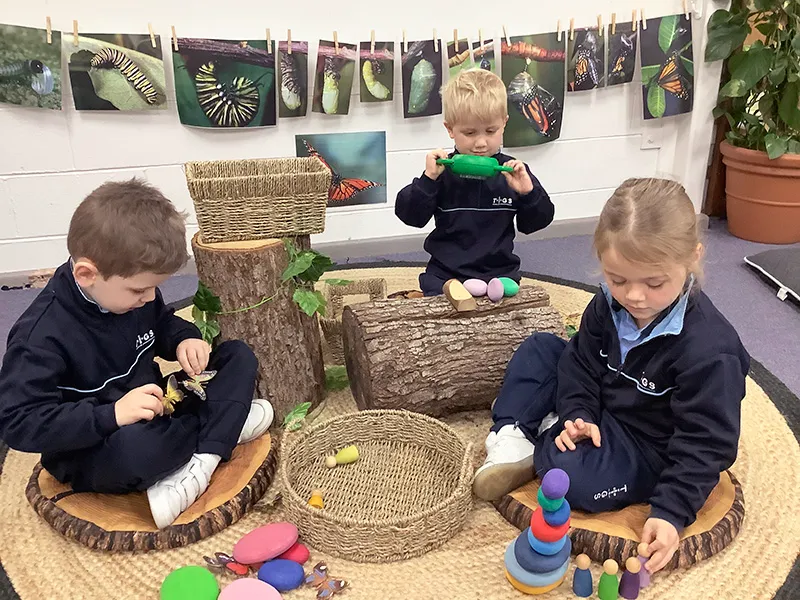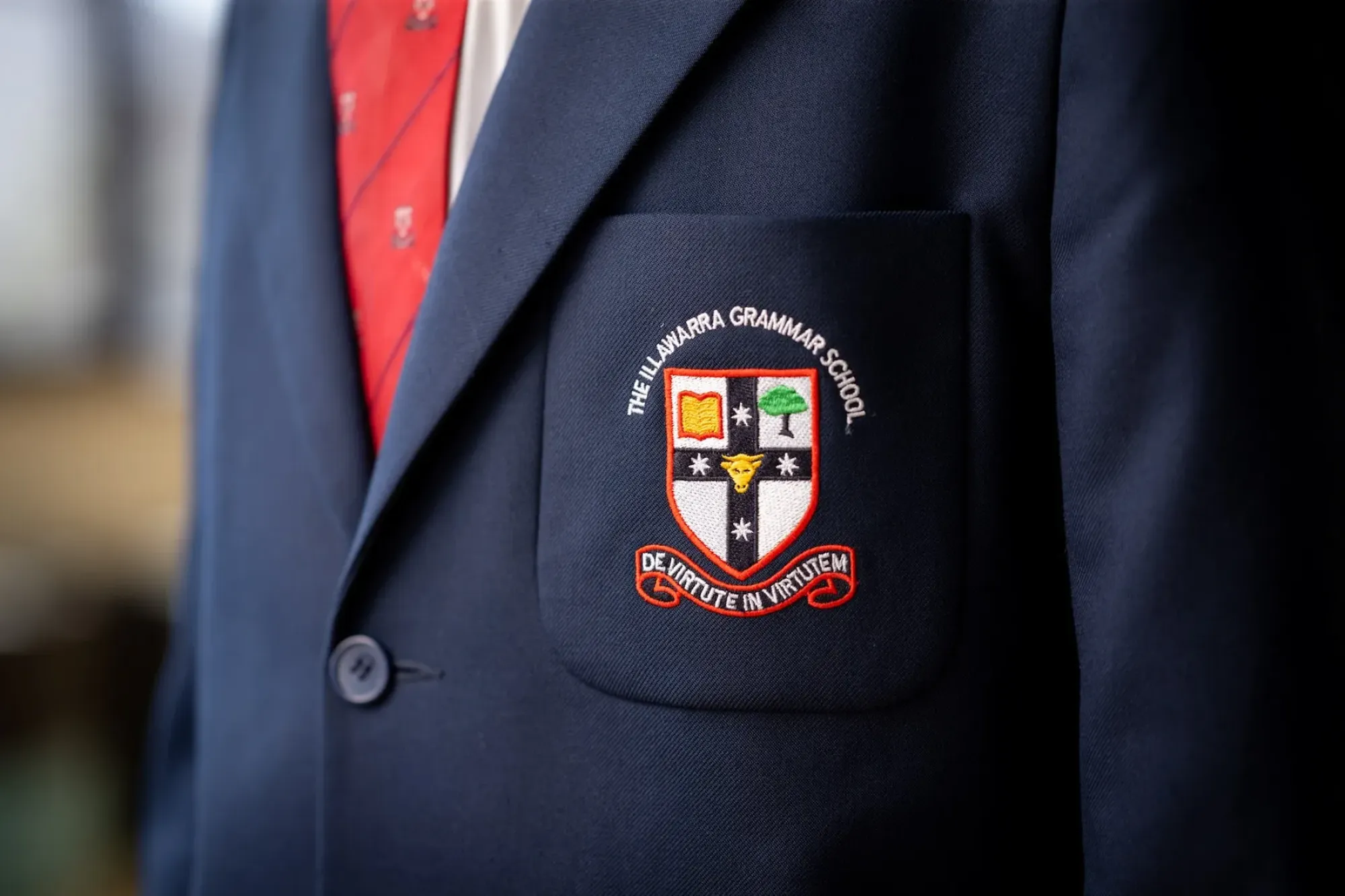
The Language of Friendship
Early childhood is a time of wonder, excitement, adventure and learning. A time to experience social relations and friendships and all of the emotions involved. Exploring emotions is an important learning tool in an early learning environment and it is critical that young children understand that all people have emotions. The educators help the children to learn how to name their emotions and they guide them gently in the best ways to express them. Emotions can often be confusing so being able to see them as natural and universal is an important learning experience for young children.
Assisting children in establishing positive friendships in the early years and helping them develop the necessary skills needed to maintain reciprocal relationships is imperative. Engaging in social interactions with peers is a vital aspect in promoting social/emotional confidence and is an essential part of life. When children are able to confidently explore and engage with social and physical environments through relationships and play, their emerging autonomy, inter-dependence, resilience and sense of agency is promoted (EYLF Learning Outcome 1: Children Have A Strong Sense of Identity).
Friendships bring pleasure, comfort and important opportunities to learn and develop in a social world. Friendships help children feel good about themselves and help each child adapt more easily to early childhood environments which support children to build their self-confidence.

It is so rewarding for our educators to look around and observe how beautifully settled and happy our children are at TIGS Prep. Watching the children at play is truly a delight as we see all the beautiful friendships taking place around us. It is always pleasing for the educators to see children within their class group having positive interactions and social engagements in play experiences where the children are connecting cooperatively, respectfully, displaying empathy and being mindful and understanding of each other’s needs and wants.
We appreciate how attached our children are to their friends and how important this is for their wellbeing. Recent research suggests that friendships in the Early Childhood years not only increase a child’s sense of belonging but teaches them important social skills, such as being sensitive to another’s viewpoints, learning the rules of conversation and age-appropriate behaviours. Early friendships not only encourage children in building self-esteem and confidence but also assist in them developing their own identity and sense of belonging.
As our children grow and develop, learning how to manage friendships is also important and developing positive social skills from an early age, greatly supports their understanding of sharing, turn-taking and listening to others. Disagreements and misunderstandings are a natural part of all friendships and it is important as adults that we guide them through this process and do not get invested ourselves in little altercations or disagreements, instead of helping them to navigate conflict by role modelling how we ourselves deal with these. Often this means having to role model to children how to say sorry or apologise when we hurt another person’s feelings.
TIGS Prep children genuinely enjoy the company of their peers and thrive from their social interactions in which they are involved. Often, it is important to just stand back and observe the way the children communicate with and assist one another, to see how they are being a caring and kind friend, understanding how others feel and wanting to help out someone in need. The educators promote this learning as we witness many examples on a daily basis that bring great joy and reinforce how extraordinary the children are.
(EYLF Learning Outcome 3: Children Have A Strong Sense of Wellbeing)

